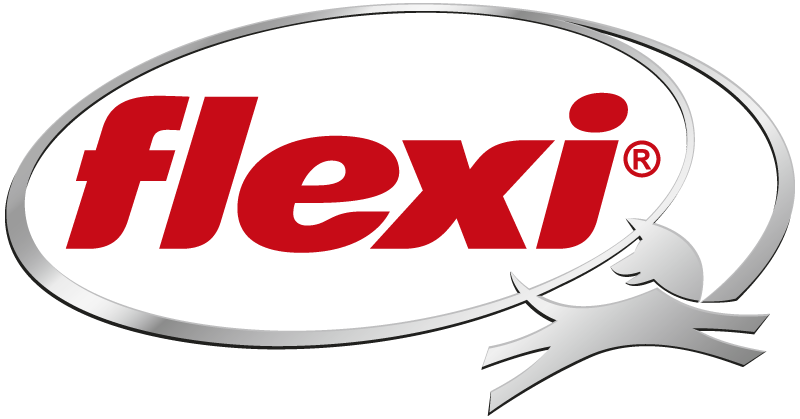
Superfood for dogs – what’s the deal?
The new, healthy diet trend has now reached the world of dogs and is revolutionizing how we feed our canine companions!
Superfoods have valuable benefits in terms of dogs’ health. They can help boost the immune system and support the nerves and the gastrointestinal tract. They are also said to help fight worms, viruses, bacteria and even cancer.
These “superfoods” include native and exotic seeds, different types of fruits and vegetables, herbs and oils.
Superfoods can be found at organic or health food stores, supermarkets, or right in your own backyard. They come in various forms: as a staple food in cans, as an addition to dry food or kibble, to supplement raw feeding, as a smoothie for dogs or as ingredients for homemade snacks.
Owners should always remember to start slowly when optimizing their dog’s diet, in small amounts. If a dog already has health problems or needs a special diet, the owner should consult a veterinarian, animal health specialist or nutritionist.
Seeds
Chia seeds
The Aztecs recognized the positive effects of chia seeds and fed them to their animals. These seeds are proven to contain above-average levels of antioxidants, which trap free radicals, and of proteins, fiber, vitamins, and minerals, all of which have positive effects on the immune system and metabolism.
Veterinarians in Canada and the United States have used this super seed for quite some time now to treat diseases like diabetes and for gastrointestinal problems and animals at risk of heart disease. A study by NSRI Massachusetts (USA) namely showed a blood-thinning effect, which regulates blood sugar levels and is said to minimize the risk of heart attack and stroke.
In addition to those benefits, chia seeds also contain nutritious omega-3 and omega-6 fatty acids. One serving (a maximum of one tablespoon per day for a 25kg dog) of these seeds provides triple the daily recommended amount of omega-3 fatty acids. Chia seeds offer a practically perfect ratio of omega-3 to omega-6 fatty acids, which has a positive effect on the dog’s overall health: Blood pressure, blood lipid levels and blood coagulation are regulated, and the brain receives better blood circulation. Improved performance capacity benefits more than just active, athletic dogs. Senior animals, too, can stay fit for longer thanks to this superfood.
Quinoa
Quinoa is native to South America, where Andean peoples have used it as a vital staple food for 6,000 years. Quinoa is not a grain, so it is gluten free.
As a result, it can generally be used with no problem as part of a diet for dogs with cereal intolerance. It is a good source of fiber, folic acid, magnesium, iron, phosphorus and much more. It therefore has a positive effect on gastrointestinal activity, fetal development, the nerves, the immune system and the skeleton. It is also among the very few plants that contain all amino acids, which makes it an important plant-based source of protein.
Quinoa should not be fed to dogs unless it is cooked. Quinoa is cooked like rice, one part to two parts water first brought to a boil and then simmered at low temperature for about ten minutes. After that, remove from heat and let stand for another ten minutes to expand.
Vegetables and herbs
Kale is a highly nutritious leafy vegetable with super powers. In Germany, it only grows during the winter season and is also easy to grow in a home garden. Kale is rich in vitamins A, E, C and K and in flavonoids. It is a good source of valuable plant-based antioxidants, which support the liver metabolism, helping to detoxify the body and protect the organism against oxidative stress. This kind of stress arises when free radicals attack the cells of the body. Kale also has anti-inflammatory properties.
Unlike herbivores, dogs cannot digest plant cells in their intact form, so kale must be pureed or steamed. It can also be used as an ingredient in a green smoothie for dogs.
Broccoli is another superfood, offering liver-protecting, anti-inflammatory, antioxidant properties and stimulating the pancreas.
Chicory helps detoxify the intestinal tract, strengthen the intestinal mucosa, regulate water levels and support the liver and gallbladder.
Fennel not only eases cramps in human children, but also has a regulating effect on intestinal activity and helps fight bloating in dogs as well.
Carrots are good for the heart and circulation, have an intestine-cleansing effect and fight worms.
Dandelion greens grow in nearly any garden and are very healthy. They help flush out excess water and have regenerative effects, supporting digestion and mildness, fighting cramps and toxins and cleansing the blood. During the season, you can puree a couple of leaves and add them to your dog’s food from time to time. That’s how simple and inexpensive a healthy canine diet can be!
Caution should be exercised with garlic. The right dose has blood-cleansing and antibacterial effects and impedes the growth of tumors. Intestinal parasites, fleas and ticks do not like the odor of garlic exuded via the dog’s skin. But if a dog is fed too much garlic, it can destroy red blood cells and cause anemia. Don’t worry, though: a single clove of garlic a day for a 25-kilogram dog won’t cause any harm.
Fruit
Cranberries are another superfood, featuring anti-inflammatory and antibacterial effects. They are especially helpful for urinary tract infections.
Baobab is available as a powder. This fruit really packs a punch. It can aid in the growth of intestinal bacteria. It also has antioxidant, anti-inflammatory effects and strengthens the nerves. When things get stressful, you can support your dog with a tasty smoothie.
Many locally available types of fruit, such as raspberries, blackberries, strawberries and apples, are also healthy, along with – last but not least – the exotic goji berry. They support the nerves and the immune system, help cleanse the intestine and have anti-inflammatory and detoxifying effects.
Oils
Oils are an important part of a healthy diet.
They contain polyunsaturated fatty acids, which are needed by the organism. Saturated fatty acids provide energy, while unsaturated ones strengthen the immune system and cell formation, have positive effects on brain development and vision and help ensure a shiny, thick coat.
Flaxseed oil has anti-inflammatory effects and high levels of polyunsaturated omega-3 fatty acids.
Salmon oil is an excellent source of omega-3 fatty acids, a valuable type of nutrient.
Safflower oil has very high levels of polyunsaturated fatty acids and is good for dogs with coat or skin issues.


